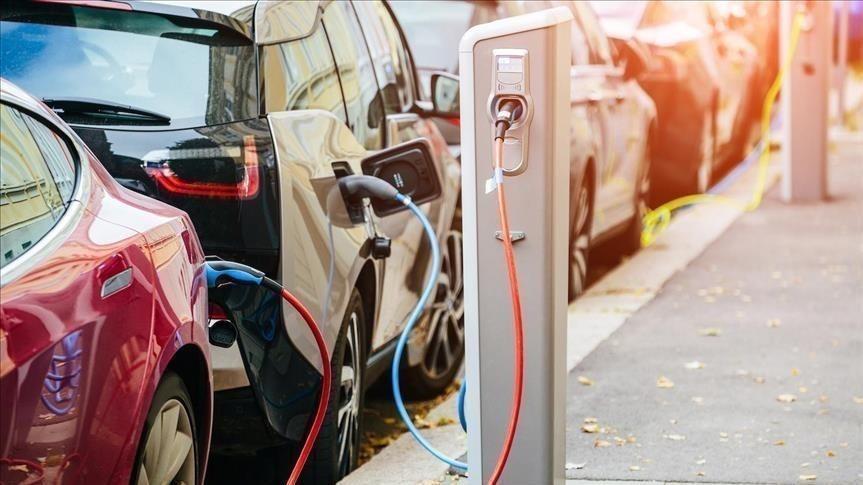ISTANBUL

Electric vehicles have gained significant momentum in sales numbers and market share both globally and in Türkiye, with the country securing fourth place in Europe for EV sales performance over the past two years.
Global EV sales rose 27 percent in the January-July period of 2025 compared to 2024, reaching 10.7 million units.
In Türkiye, electric car sales climbed to 102,160 units during the same period, capturing a 17.9 percent share of the total market.
China leads the global surge in EV adoption, with 6.5 million units sold in the seven months — a 29 percent annual increase.
Europe saw EV sales grow 30 percent to 2.3 million units, while North America recorded a 2 percent rise to 1 million.
Hyundai Motor Türkiye Sales, Marketing and After-Sales General Manager Murat Berkel told state-run Anadolu Agency that EV sales in Türkiye have exceeded expectations, with a 147 percent jump from last year.
Berkel noted that anticipation of possible changes in special consumption tax thresholds in the first half drove strong demand, saying, “This naturally led to high sales. Additionally, rising fuel prices directed users toward electric vehicles, which are 40 percent more economical in consumption. Of course, the recent tax bracket increase may slow the upward trend in the EV market, as 83 percent of sold electric vehicles were in the 10 percent tax bracket.”
“Now starting from 25 percent, vehicle prices have increased by 250,000 to 300,000 lira. While this hike may create short-term negativity among consumers, EVs still should be more attractive compared to internal combustion vehicles,” Berkel said.
“Therefore, I think the slowdown in EV sales will be temporary, and we’ll see acceleration again soon.”
Recalling that June EV sales hit an all-time high of 25,827 before the tax change, Berkel pointed out that the first six months averaged over 16,000 units monthly.
He added, “We estimate EV sales could average around 15,000 units monthly in the remaining months. If no major changes occur, we foresee the EV market closing the year at 180,000 units.”
“Comparing Türkiye’s EV sales rate globally and in Europe, it’s aligned at 18 percent. With this performance over the last two years, Türkiye has settled into fourth place in Europe for EV sales,” Berkel said.
“This success shows us a high sales potential ahead.”
Berkel said Türkiye’s automotive market has performed well in sales over the past two years, with 2025 mirroring 2024’s results.
In the first seven months, 715,695 vehicles were sold, up 7 percent year-on-year.
Berkel noted that a large portion of car sales in past years were through credit, concluding, “In the coming period, with a possible interest rate cut, we expect sales to accelerate further. Considering current conditions, we estimate the market will reach 1.2 million units by year-end.
BYD Türkiye General Manager İsmail Ergun recalled that before 2022, EVs held less than 1 percent of the passenger car market share, rising to about 7 percent in 2023, 10 percent in 2024, and 18 percent in the first seven months of 2025.
Ergun emphasized the role of state incentives, new model diversity and rapid charging infrastructure growth, saying, “According to EPDK data, the number of charging sockets, around 3,000 in 2023, has increased nearly 10-fold to over 31,000 today, while EV charging stations approach 12,000.”
“Model variety in Türkiye’s passenger car market is also expanding rapidly; just in the first six months of this year, 12 new EVs were launched. These developments indicate that interest in EVs will continue in the coming period,” Ergun added.
Touching on July’s special consumption tax regulation, Ergun said its impact on the market needs monitoring through second-half data.
“However, considering the model diversity of EVs and user interest, it’s likely the sales pace will hold. Currently, over 100 EV models are on the market, and a significant portion still has tax advantages compared to internal combustion vehicles,” he added.
“Therefore, we foresee the overall sales pace will be maintained, with limited changes in model preferences. In this framework, we estimate the total EV market share will be slightly above 20 percent by year-end,” Ergun concluded.
